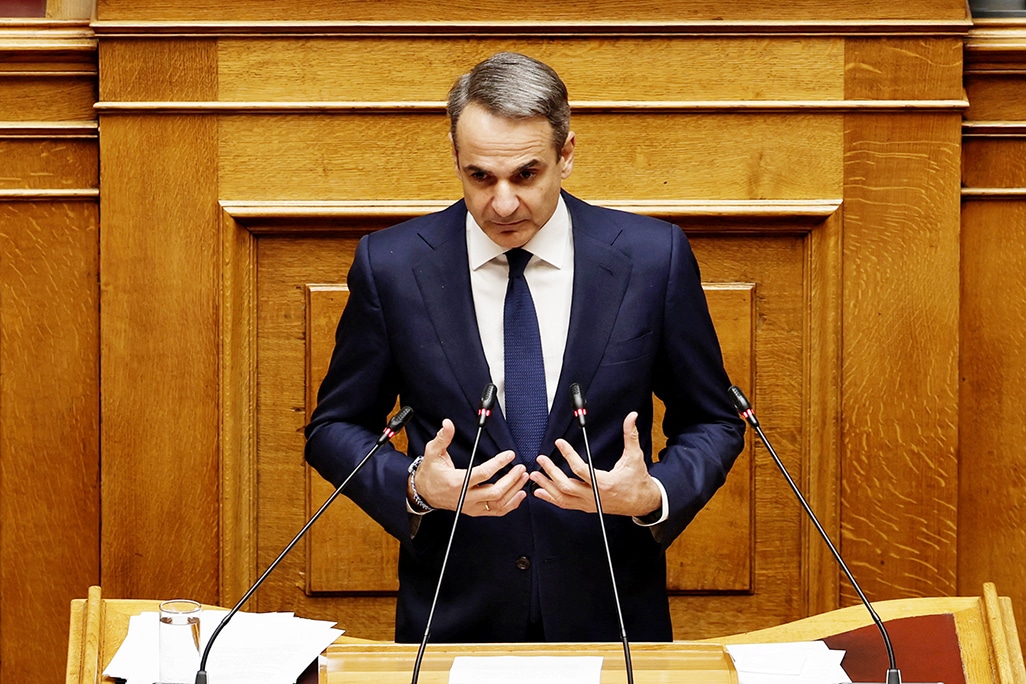Greek Prime Minister Kyriakos Mitsotakis urged the media in both Greece and Cyprus to “not go overboard” with its reporting on differences of opinion between the two countries over the Great Sea Interconnector.
In an address to his country’s parliament, he said that “media in both countries are discovering and reporting unimaginable scenarios”.
“I have an excellent relationship of mutual trust and absolute honesty with [Cypriot President] Nikos Christodoulides. I would recommend that any media which discovers problems and friction not go overboard, as these are issues which concern the unity of Hellenism,” he said.
However, it was not only the media which raised concerns to Mitsotakis, with opposition party Pasok leader Nikos Androulakis offering criticism in his own speech to Greece’s parliament.
“Have you ever, in the 51 years since Greece transitioned to democracy, seen such public conflicts between Greece and Cyprus?,” he asked, before calling on Mitsotakis to “submit to parliament a full timetable on the progress of the project”.
The comments come amid an ongoing rift between Greece and Cyprus over the matter, and hours ahead of a planned meeting between European energy commissioner Dan Jorgensen, Cypriot Energy Minister George Papanastasiou, and his Greek counterpart Stavros Papastavrou which aims to set things straight.
The rift’s latest development saw Cypriot Finance Minister Makis Keravnos accuse Papastavrou of “fake news” over the matter on Monday morning, while Greek Foreign Minister Giorgos Gerapetritis called for clarity regarding Cyprus’ position on the matter the following day.
“This is because, of course, the national benefits which are produced may be very important, but technical and economic viability is also a necessary condition with regard to European funding,” he said.
As such, he said, “it is not a factor which you can ignore”.
Keravnos’ comments had come after Papastavrou had said that he “does not show” the studies which he claimed demonstrate the project is not sustainable.
The rift between the two governments is sourced from the Cypriot government’s initial agreement to make five annual payments of €25m to Greece’s independent transmission system operator Admie before the interconnector is operational, but which it has thus far withheld.
The payments would in effect help finance the project and ensure that Admie, its 51 per cent shareholder and implementing body, will have a stable income while investing in the project before it turns a profit, but the Cypriot government has cited a lack of tangible progress on the project and differences in opinion regarding how the money should be sourced as its reasons behind not paying the money.
To this end, Papanastasiou had said last month that Cyprus will pay the first €25m instalment when the project is being “implemented in its entirety”, and that the construction of cables alone is “not enough” to meet this criterion.
The Republic of Cyprus had initially planned to utilise funds made available to it through the European Union’s emissions trading system (ETS) to make the payments to prevent the burden of the payments from falling on the taxpayer.
Admie had warned that this arrangement may violate the EU’s rules on state aid, and as such asked the Cyprus energy regulatory authority (Cera) to begin charging consumers instead.






Click here to change your cookie preferences